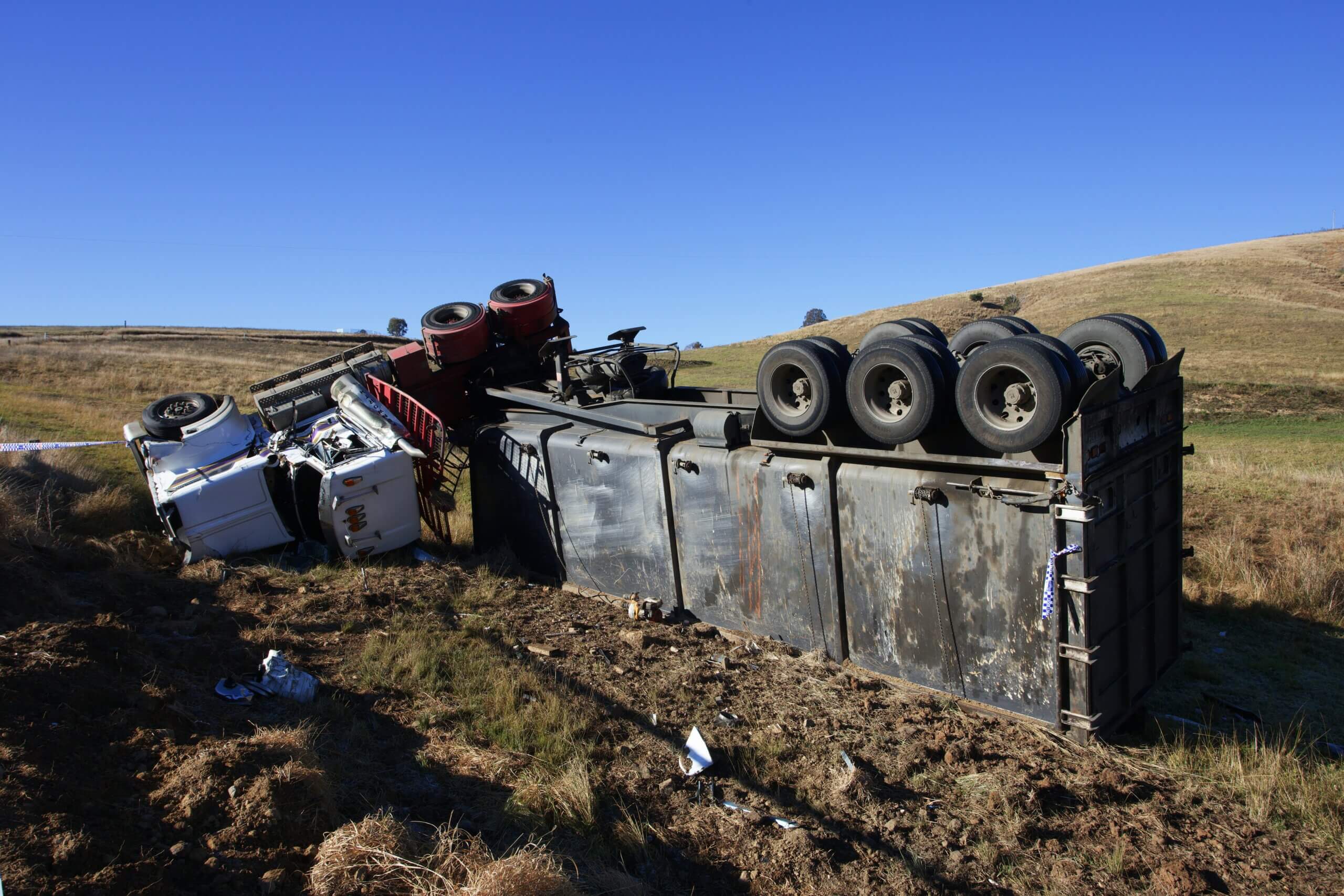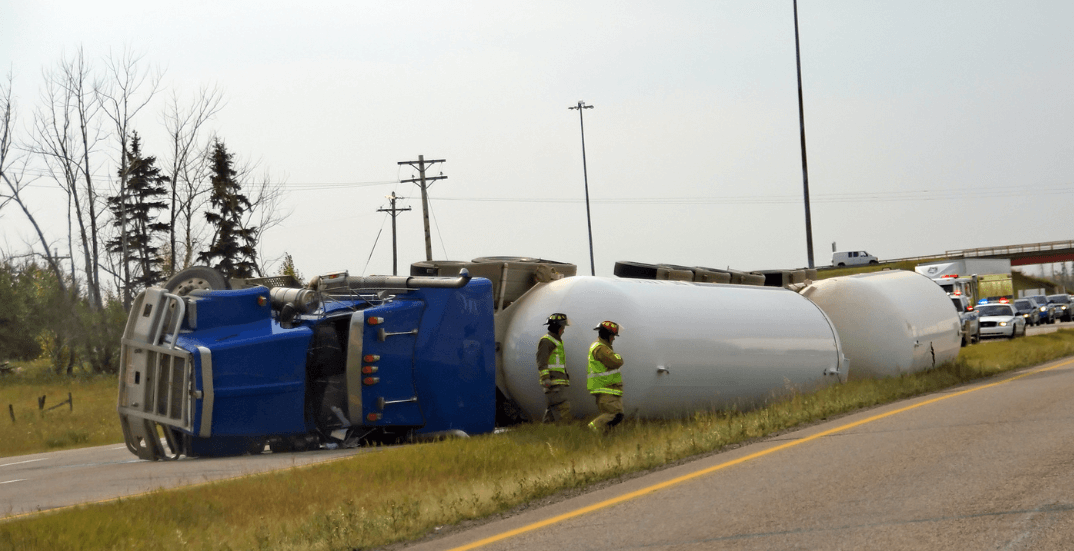
Partner at AKD Lawyers
Practice Areas: Personal Injury, Insurance Claims

Overloaded semi-trucks pose a serious threat to road safety. When a truck carries more weight than legally allowed, it becomes difficult to control, stop, and maneuver. This increases the risk of catastrophic accidents, injuries, and even fatalities.
Many trucking companies and drivers overload their trucks to save time and money, but this reckless practice comes at a high cost. Heavier trucks put stress on roads, cause severe accidents, and result in legal consequences for those responsible.
In this article, we will explore the dangers of overloaded trucks, the laws governing truck weight limits, liability in truck accidents, and what legal options are available for victims.
Legal Weight Limits and Regulations
The federal government and individual states have set weight limits to ensure safe trucking operations. The Federal Highway Administration (FHWA) enforces these rules through the Federal Bridge Formula, which determines weight distribution based on axle configurations.
- The federal gross vehicle weight limit is 80,000 pounds (including cargo and truck weight).
- Single-axle trucks have a weight limit of 20,000 pounds.
- Tandem axle trucks can carry up to 34,000 pounds.
State laws may impose additional restrictions. Some states require overweight permits, while others impose heavier fines for violations. If a truck exceeds weight limits, the driver, trucking company, and loading facility may all face penalties.
Risks and Dangers of Overloading
Overloading a semi-truck makes it unsafe to drive. The added weight affects multiple aspects of the truck’s performance, increasing the risk of serious accidents.
Compromised Braking Distance
The heavier a truck is, the longer it takes to stop. A fully loaded semi-truck already requires up to 40% more distance to stop than a regular passenger car. Overloading increases this distance significantly, making it harder to react to sudden traffic changes.
Loaded tractor-trailers require 20%-40% more distance than cars to stop, and the discrepancy is greater on wet and slippery roads or with poorly maintained brakes.
Mechanical Failures
Overloading puts excessive strain on a truck’s mechanical systems, leading to:
- Brake failure: Too much weight reduces brake efficiency, increasing stopping distances.
- Tire blowouts: Excess weight causes tires to overheat and wear out faster.
- Steering problems: Heavy loads make it difficult to maneuver, especially on sharp turns.
Brake failure, tire blowouts, and steering system failures occur more frequently when cargo exceeds legal limits. A truck may roll or jackknife into oncoming traffic when unexpected failures occur.

Increased Rollover Risk
When a truck carries excessive weight, its center of gravity shifts, making it unstable. Sharp turns, sudden lane changes, and strong winds can cause an overloaded truck to tip over. Rollovers are especially dangerous on highways, as they can block multiple lanes and lead to catastrophic accidents.
Infrastructure Damage
Overloaded trucks cause significant damage to roads and bridges. Excessive weight leads to cracks, potholes, and structural weaknesses in bridges. This damage increases maintenance costs for taxpayers and can lead to bridge collapses if left unchecked.
Overloading increases a vehicle’s stopping distance, making it difficult to halt swiftly in an emergency, thereby elevating the risk of accidents.
Statistical Overview
The numbers don’t lie—overloaded trucks contribute to a significant number of accidents each year.
Tabular Data:
| Year | Total Truck Crashes | Fatalities | Injuries |
| 2020 | 415,444 | 4,444 | 101,000 |
| 2021 | Data Not AvailableData Not Available | Data Not Available | Data Not Available |
Case Studies and Legal Precedents
Several high-profile truck accident cases highlight the dangers of overloading:
- A trucking company was held liable for a $15 million settlement after an overloaded truck caused a fatal highway accident.
- A driver faced criminal charges for negligence when an overloaded semi-truck led to a multi-car pileup.
- A state DOT fined a trucking firm over $500,000 for repeated overloading violations, leading to infrastructure damage.
Liability in Overloading Incidents
When an overloaded truck causes an accident, determining who is responsible is crucial.
Liability may fall on:
- Truck drivers who knowingly operate overloaded vehicles.
- Trucking companies that pressure drivers to exceed weight limits.
- Cargo loaders who fail to distribute weight properly.
Victims of overloaded truck accidents may be entitled to compensation for medical bills, lost wages, and pain and suffering. A truck accident attorney can help gather evidence, such as truck weight records, driver logs, and maintenance reports, to prove negligence.

Preventative Measures and Best Practices
Preventing overloaded truck accidents starts with proper weight management and enforcement. Trucking companies and drivers can follow these best practices:
- Regular weight checks: Use weigh stations to ensure trucks are compliant.
- Proper cargo distribution: Ensure that loads are balanced to avoid stability issues.
- Routine vehicle maintenance: Check brakes, tires, and suspension systems to handle expected loads.
- Training programs: Educate drivers on the dangers of overloading and how to report pressure from employers.
FAQs
What defines an overloaded semi-truck?
An overloaded semi-truck exceeds the weight limits set by federal or state regulations, compromising safety and vehicle performance. Overloading affects the truck’s ability to brake, steer, and maintain stability, increasing the likelihood of accidents.
What are the legal consequences of operating an overloaded truck?
If an overloaded truck causes an accident, truck drivers and companies may face fines, license suspension, and potential lawsuits. Civil liability can lead to compensation claims for victims injured in these crashes.
How does overloading affect a truck’s braking ability?
Excess weight increases the stopping distance required for a truck to come to a complete halt. This makes it harder to stop in emergencies, increasing the chances of rear-end collisions or other high-impact crashes.
Who can be held liable in accidents involving overloaded trucks?
Liability may fall on truck drivers, trucking companies, or cargo loaders. If a trucking company pressures drivers to overload vehicles, they may be held accountable for negligence in court.
What steps can trucking companies take to prevent overloading?
Trucking companies should implement strict loading protocols, conduct regular vehicle inspections, and provide comprehensive training to drivers and loading personnel. Ensuring compliance with weight regulations reduces risks and liability.
Conclusion
Overloaded semi-trucks pose a significant danger to road safety. Excess weight increases stopping distances, causes mechanical failures, and leads to deadly accidents. Federal and state laws exist to regulate truck weights, but when these laws are ignored, the consequences can be severe.
If you or a loved one has been involved in an accident with an overloaded truck, you may be entitled to compensation. A skilled truck accident attorney can help you navigate the legal process and hold negligent parties accountable.
For legal guidance on truck accident claims, contact AKD LAW today for a free consultation.
Categories

In 2003, after being dissatisfied with the quality of legal care for victims of car accidents, Roderick ‘Rico’ Alvendia sought to establish a new firm focused on providing high-quality legal services to aid injured victims and their families. J. Bart Kelly, sharing Rico’s passion for upholding justice, joined the firm later that year, and established a partnership.






